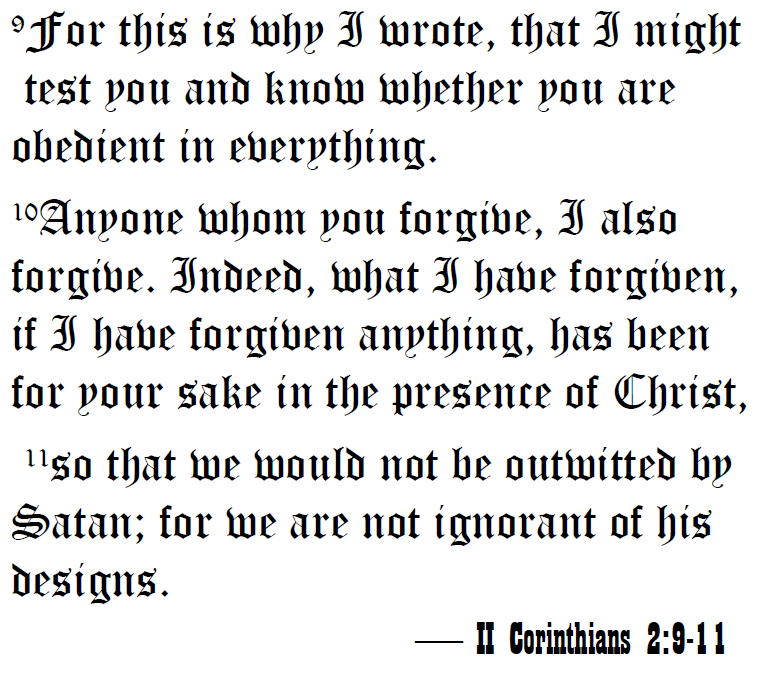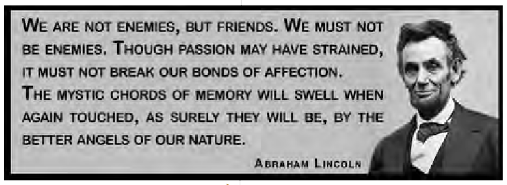Pastor’s Page August 2020

At this time of the year, I am reminded that August might be the most in-aptly named month of the year. After all, august is an adjective that means: marked by majestic dignity or grandeur. The name implies that this would be the month to celebrate some grand event, movement, or individual, and yet this month contains no great holiday, and yet, this of all months has no such grand holiday. Still, when this month rolls around without its majestic day of remembrance, I believe it to be a humble reminder that we should all aspire to live a better, more majestic life.
This is a time that we should be guided “by the better angels of our nature.” For too long, the corrupt and fallen nature of humanity has dictated the course of history. The 20th century began with great optimism as a time when wars and violence would cease. Instead, it became the deadliest in history with two world wars, a Cold War, and countless lives lost to genocide from Russia to Cambodia to Rwanda and far beyond.

Those issues have marched forward into the first 20% of our current century with 9/11 and a war in Afghanistan and Iraq that has stretched on for 15 years. Other nations have risen and fallen, and then 2020 has come.
There was enough pressure from a pandemic, but there is now civil unrest in our own land as the possibility of it all devolving into chaos, anarchy or another civil war not seeming too far fetched. So many on various sides of the social, ideological, and political spectra seem hell-bent on burrowing to greater depths of depravity.
To survive, we do need to dig deep not to plumb some great reserve of greater power by which we may defeat our enemy. Instead of confronting evil with equally depraved acts or conniving to destroy our enemies, we need to discover “the better angels of our nature” to overcome evil with good (see Romans 12:21). Paul, in his second letter to the Corinthians (see quote at the be- ginning of this article), promised to forgive whomever the Corinthians were willing to forgive. Forgiveness, as Paul writes, short-circuits the Devil’s schemes. Satan tells us we can only get ahead and rise to new heights by climbing on the backs of others. However, the Gospel teaches us to forgive our enemies (see Matthew 5:44), to bless those who curse us (Luke 6:28), and to become the servant of all (Matthew 23:11).
You may think it impractical to live out the Gospel in such a manner. After all, won’t our enemies steamroll us if we try to serve them? Won’t they bleed us dry if we offer them our gifts? But let me make this retort: should we not be the ones to demonstrate what love looks like? Should we not be the ones who build a better tomorrow when others try to destroy what we have this day and erase our past?
To prevent a new civil war, we should look back to the days leading up to our original Civil War. In 1861, before his inauguration, Lincoln showed a draft of what he in- tended to say to William Seward, his Secretary of State. Seward recommended that Lincoln conclude with conciliatory words, and sketched out a few sentences for Lincoln to consider.
On the previous page, in the box, is the quote, from the final paragraph of Lincoln’s First Inaugural Address delivered just months before the outbreak of war. Seward’s rough draft, which has been preserved, contains the expression “better angel.” Twenty years earlier, in 1841, Charles Dickens had used “our better angels” in his novel “Barnaby Rudge.” There is no evidence that Lincoln read Dickens, but Seward did.

The quotation from Dickens is below. The quote is long, and I present it here in its entirety, not just because it contains the germ of a concept that Abraham Lincoln immortalized, but because of its wise and spiritual insight.
“The thoughts of worldly men are for ever regulated by a moral law of gravitation, which, like the physical one, holds them down to earth. The bright glory of day, and the silent wonders of a starlit night, appeal to their minds in vain. There are no signs in the sun, or in the moon, or in the stars, for their reading. They are like some wise men, who, learning to know each planet by its Latin name, have quite forgotten such small heavenly constellations as Charity, Forbearance, Universal Love, and Mercy, although they shine by night and day so brightly that the blind may see them; and who, looking upward at the spangled sky, see nothing there but the reflection of their own great wisdom and book- learning…
“It is curious to imagine these people of the world, busy in thought, turning their eyes towards the countless spheres that shine above us, and making them reflect angels, and thus their brightness is eclipsed” (italics added).
One final comment. Shakespeare used the words “better angel” in “Othello,” and we know for certain that Lincoln had read “Othello.” The expression is used in a remark made by Gratiano, a nobleman from Venice, after the death of Desdemona to describe enlightened and re- strained human impulses. Gratiano speaks of pushing away the ‘better angel” which would hold him back from taking bloody revenge.
From the Bible, to Shakespeare, to Dickens, to Lincoln, and now to us, we struggle to live with the eyes of our hearts and minds cast upon great wonders, great opportunities, and great responses. When the world falls apart, history crumbles into rubble, and our grand buildings are covered in graffiti, may we see beyond the pollution of light and noise to peer into “such heavenly constellations as Charity, Forbearance, Universal Love, and Mercy.”
Let us make this Au- gust truly august as we strive to bring our better angels to bear on the needs of these days. Let us manifest the fruit of the Spirit (Galatians 5:22-23) as we live out the Great Commission (Matthew 28:18-20) as governed by the Great Commandment (Matthew 22:36-40). To win the day may mean becoming living sacrifices (Romans 12:1-2), so future generations may live free. We do not need to shout over the din to accomplish this. We know a better way but it requires us to live Christ-like lives that embody His Gospel as led by the Spirit. We need to proclaim the Good News as we live genuinely faithful lives that demonstrate we are a people that loves one another, cares for the world, and models grace and mercy.
In other words, the world needs to see a people commit- ted to unity in Christ—a people governed not by our base nature but “by the better angels of our nature.”
In humble service,
Pastor Randall

